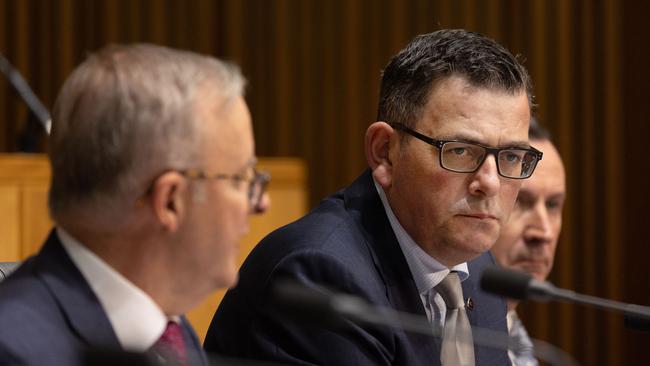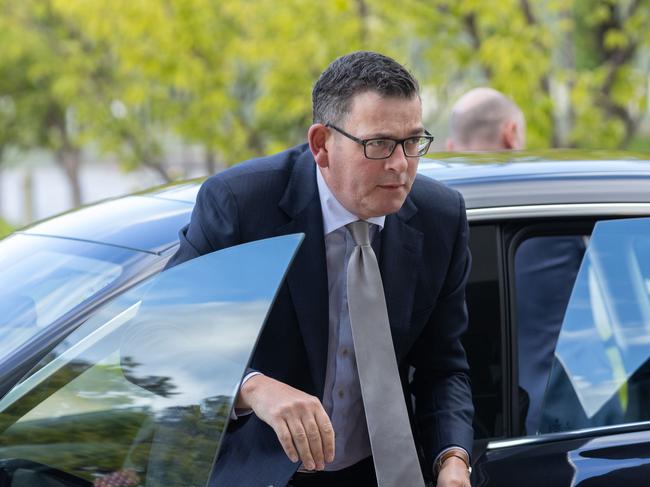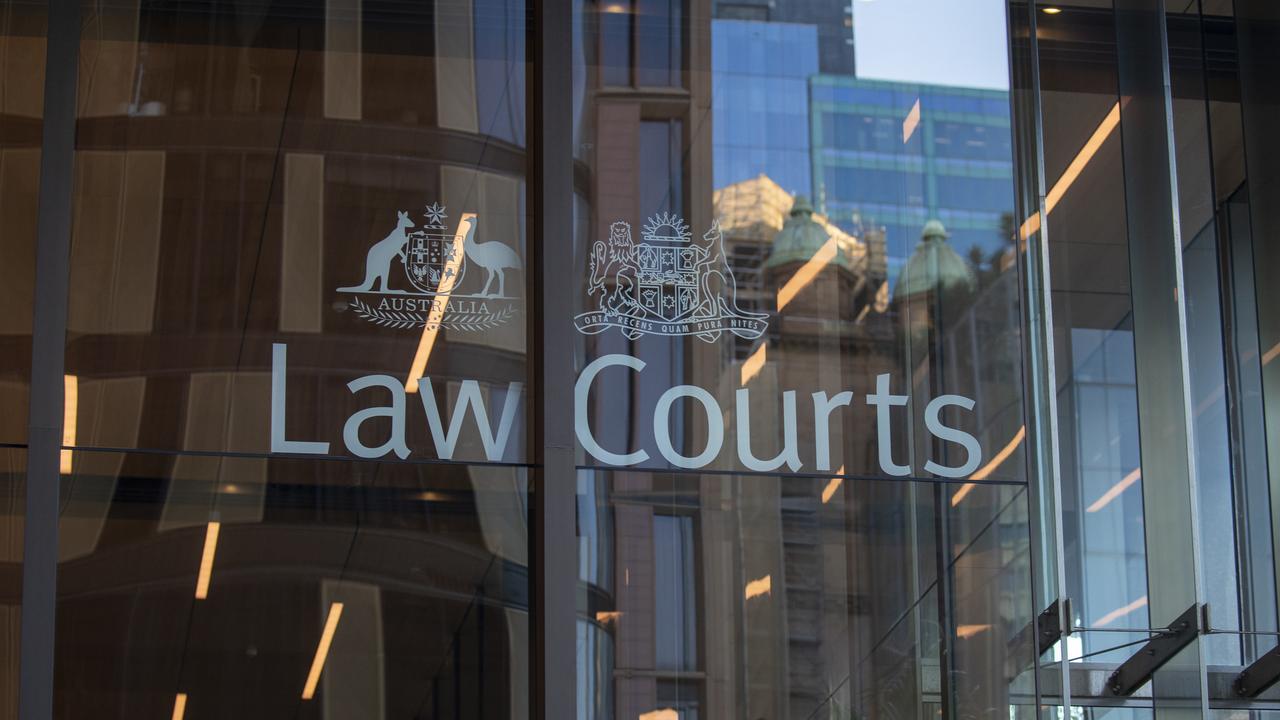
The collapse of Credit Suisse and US regional banks has concentrated world money markets on debt security.
It is only a matter of time before global attention is focused on the weakness of Australia’s eastern mainland states, led by Victoria.
All three have spending programs that look unsustainable in a lending world that is becoming more debt safety conscious and where the world interest rate barometer, the US long-term bond rate, is on the rise.
The Victorian problem has been evident for many years, as the state under Premier Daniel Andrews borrowed its way to electoral victories.
The good news is that Victoria has finally woken up that it has a problem and is planning major cuts to infrastructure spending – press reports indicate the airport to city train project is vulnerable – and reducing operating expenses.
But if Victoria comes onto the radar of the global lenders, then the reductions that have so far been canvassed will barely touch the surface of the problem.
And if Victoria is forced to pay much more for its debt than that will impact the other states, led by NSW, which has its own set of problems.
The Commonwealth will be embroiled.
Both NSW and Victoria have very optimistic plans to increase the generation of renewable energy and dominate the national plan that requires the nation to build over the next seven years around 40 seven-megawatt wind turbines every month and more than 220,000 500-watt solar panels every day.
These are targets that can’t be achieved without uneconomic expenditure and big borrowings and other financing commitments.
Victoria plans to lead the way and in 12 years plans to have 95 per cent of its energy supplied by renewables and a 75 to 80 per cent reduction in emissions.

Victoria can’t borrow the required money, so is entering into contracts with the private sector to build the installations on the security that the state will buy the power generated at a high price that will go on for decades.
Experienced global lenders know that this is a form of disguised borrowing.
And the overambitious national targets are being attempted when the rest of the world is planning similar programs, albeit less ambitious.
There is a global bidding war for expertise and the mining industry is simply unprepared for the amount of material that is required for this level of investment, which includes a major change in energy usage, led by electric vehicles.
Metal prices and therefore the cost of construction is set to jump, which will help Australian miners but not those using materials.
Compounding the problem, the recent gas gymnastics by the Commonwealth is making global mining investors just a little nervous and of course there is almost no gas exploration taking place in the eastern states.
State governments that embark on major projects usually assume that the local and global money markets will simply absorb all the debt securities that they offer.
At least in Victoria, there is now an understandable twitch of nervousness.
The global money markets know from the published reports of the Australian Energy Operator and CSIRO research that without gas power generation there is likely to be blackouts in both Sydney and Melbourne in coming years which will damage industry investment.
The money market's nervousness was shattered when it was discovered that in Victoria not only was sensible gas power generation to augment renewables taken off the table, but the Victorian government politicians began playing silly concealment games.
They spent $42m on a committee to tell Victorians that the state had no onshore gas but prevented the committee from looking where one of the world’s largest gas reserve estimators MHA/Sproule had shown Victoria had a major field.
When politicians act irrationally, it makes lenders nervous because they wonder what else are they doing.
NSW is also gambling with energy security as it closes coal stations without clear plans for Narrabri gas, and it is being forced to look at its spending budgets, although the problems are not as great as Victoria.
In Queensland, the combination of government spending and the Olympics is sending building prices skyrocketing.
Both NSW and Victoria have substantial debt maturities coming up in coming years.
Next November Victoria has $4.9bn due, followed by $6.5bn in 2024 and a further $19bn in the following two years.
To these maturing debts, Victoria adds to large additional borrowings, which will be documented in the next Victorian budget.
Currently, 10-year Victorian and NSW bonds are selling around 0.6 per cent above the 10-year Commonwealth bond rate.
But it would not take very much for that margin to become much greater, particularly if any state is downgraded in credit ratings.
The federal government and state governments like WA have the benefit of mineral revenues. Sates like Victoria no longer have that advantage.
The states and the Commonwealth all need to reduce running expenses, but most areas of the Australian public service are not skilled in how to run their operations using fewer people.
As new activities have emerged, they simply added people because the operating skills that have been developed in the private sector are not there. But the need for borrowed money and credit ratings will force the states, and eventually the Commonwealth, into better management practices.





